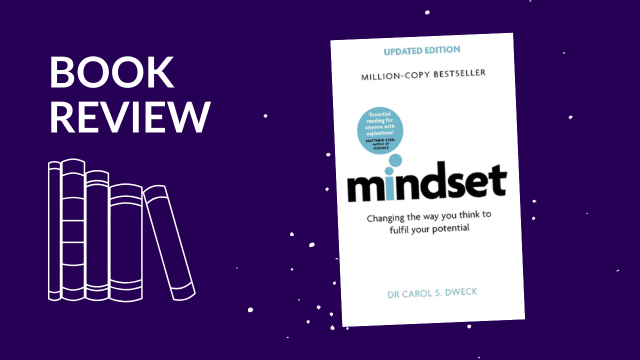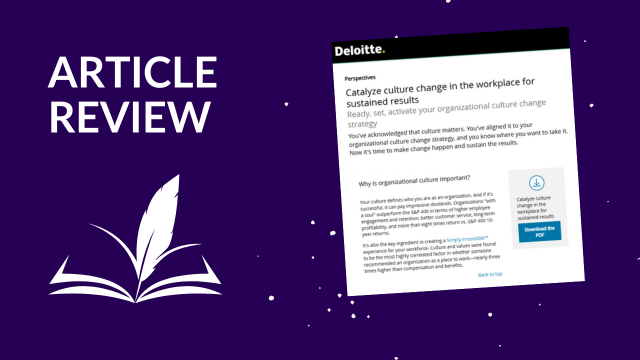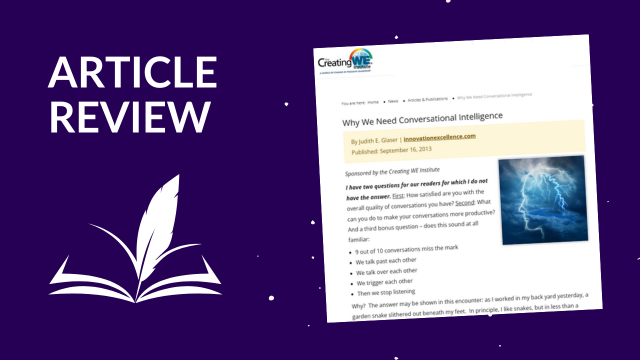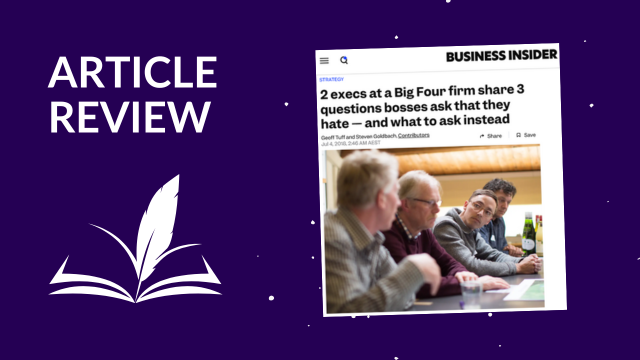In a newly published Harvard Business Article Don’t Just Tell Employees Organizational Changes Are Coming — Explain Why, Morgan Galbraith cites a study reporting that almost one third of the participants didn’t know the reasoning behind the changes their organizations were undergoing. “This can be detrimental for any company trying to implement change. When employees don’t understand why changes are happening, it can be a barrier to driving ownership and commitment and can even result in resistance or push back. And employees’ resistance to change is a leading factor for why so many change transformations fail.”
Galbraith identifies the following aspects of communicating the “why” as important to change communication success.
- “Inspire people by presenting a compelling vision of the future.” The author refers to this as “a narrative or story” that ties to the company’s mission; explains how the changes being made contribute to achieving the vision of the future; and offers a clear view of the path forward.
- “Keep employees informed by providing regular communications.” Galbraith recommends continuous communication that is “clear and consistent,” acknowledges when you don’t have all the answers, and helps answer the employees’ question, “What’s in it for me?”.
- “Empower leaders and managers to lead through change.” The emphasis here is on the importance of leaders and managers modeling the changes that are required for success, and providing them with an understanding of the dynamics of change that will allow them to lead those under them on the journey.
- “Find creative ways to involve people in the change.” Here the focus is on building employee ownership. Galbraith also provides an example of an organization that established a new employee award that recognizes the desired new behaviors.
While the focus of the article is on current employees, I would offer one more recommendation. When hiring, hire for the culture you are working to establish, not the culture you have. Hire people who have the skills that you need now, and that are eager and able to learn and develop new skills as changes continue to occur. And hire those whose personal sense of purpose aligns with that of the organization.







